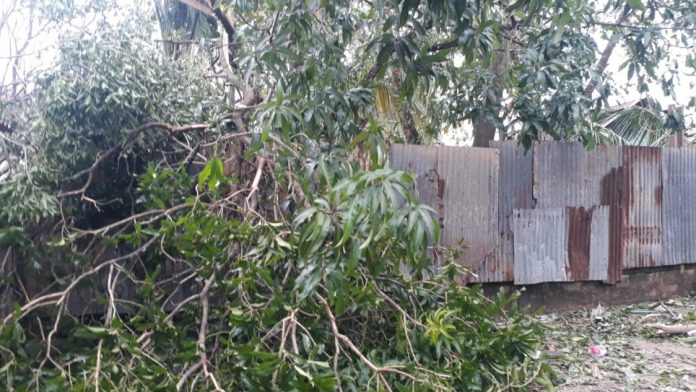Episcopal Relief & Development is supporting partners in Guatemala, Honduras and Nicaragua as they respond to the devastation caused by Hurricane Eta. They are providing food, shelter, bedding and other emergency supplies to communities that have been impacted.
Hurricane Eta struck Central America on November 2, moving through Nicaragua to Guatemala and Honduras. This week, many of the same areas were then also hit by Hurricane Iota. Even before Iota, approximately 3.6 million people across Central America had been affected by Eta, a slow-moving storm with heavy rains, flooding and landslides that wiped out entire communities. The COVID-19 pandemic has complicated relief efforts while also exacerbating the effects of the hurricanes.
In the aftermath of Hurricane Eta, Episcopal Relief & Development staff have been in close contact with the Episcopal dioceses of Guatemala, Honduras and Nicargaua to offer technical and financial support as the dioceses respond to the needs of vulnerable communities. Partners are also assessing the effects of Hurricane Iota which struck many of the same communities. Additionally, Episcopal Relief & Development staff is coordinating with the Episcopal Diocese of Cuba as church leaders determine a potential response.
The Diocese of Nicaragua is equipping farmers in the coastal village of Kisalaya by helping them recover and rebuild. Many of these farmers lost crops in the storm such as cabbage, cucumber, sweet pepper, tomato and squash seeds. The diocese is also providing farmers with rice, beans, corn and other food to meet immediate needs.
In Guatemala, Eta washed away roads and led to the evacuation of approximately 9,000 people. Over 1,800 homes were destroyed. The Diocese of Guatemala, with Episcopal Relief & Development’s support, is procuring food and bedding for shelters that have been set up in local churches. The diocese is also distributing food packages to families with children who lost their homes.
Hurricane Eta downgraded to a tropical storm by the time it hit Honduras, however the storm caused severe flooding in coastal areas. With Episcopal Relief & Development’s support, the Diocese of Honduras is providing food, clothing and other emergency supplies to shelters, individuals and families. The diocese is purchasing bedding and pillows, propane tanks, food such as meats, vegetables and grains, and clothing items. All of these items will be used by shelters to ensure that people have a safe and warm place to sleep and food to eat. Staff and volunteers are also distributing packages of supplies to help people as they return to their homes.
“The 2020 Hurricane Season has been unprecedented and many of the impacted communities continue to deal with the effects of the COVID-19 pandemic,” said Nagulan Nesiah, Senior Program Officer, Disaster Risk and Reduction, Episcopal Relief & Development. “Our partners in Central America are responding to assist women, children, farmers and other groups that have been disproportionately affected by the multiple disasters of COVID-19, Eta and Iota.”
Donations to Episcopal Relief & Development’s Hurricane Relief fund will support continued response to storms such as Eta and Iota. To learn more about Episcopal Relief & Development’s COVID-19 response, visit episcopalrelief.org/pandemicresponse.



